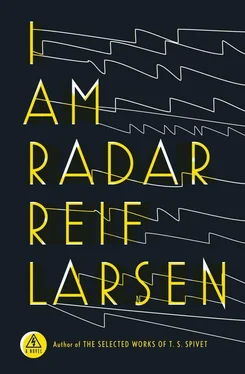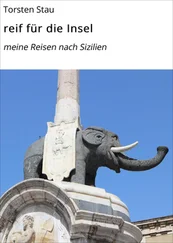In the world he had left behind, the differences people used to judge each other, to kill each other, to declare war upon each other — these differences were often largely invisible: religious, ideological, ethnic distinctions not obvious until a name, an accent, or a birthplace was revealed. During the war, the armies wore uniforms that designated them as Partisan, Chetnik, Ustaše, but for the populace at large, one could shape-shift between these definitions, depending on who was knocking on your door. The result of such indeterminism was that in the pre-Tito Yugoslavia from which he had fled, family trumped race, religion, and creed. Above all else, you took care of your own, primarily because you could not be sure about the slippery identity of your neighbor. Kermin had spent only the first ten years of his life in Yugoslavia, but during these ten years he had learned everything there was to know about whom you must protect and whom you must reject, and such lessons can never be unlearned. In his own quiet way, Kermin threw himself into loving his son.
And yet he also knew better than to protest his wife’s growing obsession with tracking down a tangible diagnosis. He instinctively understood that her quest superseded the fragile boundaries of their little nuclear family. He, like her, had begun to subscribe to the belief that a diagnosis would solve much of what was wrong in their life, but whereas Charlene hoped such a naming would bring back her child, Kermin hoped it would bring back his wife. He had seen enough suffering in the world to know that Charlene — despite everything — was the greatest prize an immigrant electrical engineer could ever hope for. There were still days when he marveled at his luck: Charlene was beautiful. Charlene was brilliant. Charlene was his.
So he would dutifully drive his wife and child to all of their dermatology appointments, sitting patiently in the magazined waiting rooms, listening to ionosphere updates on his handheld. When asked, he would hold his son or feed his son, and when Charlene was busy, he would take Radar to the Ravna Gora Communications Shop, on Grove Street, where he placed him in a crib among the sea of spare parts as he reassembled radios and pocket TVs, which were his specialty.
It was also Kermin who bore the brunt of scrutiny from the Serbian community in Elizabeth, a community he quietly resented but could not shake. On the surface, Saša and her band of skeptical kerchiefed babas were kind and supportive, but he could hear the phlegm-inflected whispers they uttered behind closed doors. There were rumors that Charlene had been seen philandering with black men at certain slick-necked jazz clubs across the river in Harlem.
“Ona voli crni kurac,” he overheard snot-nosed Olga say after Easter services. He tried to convince himself it was possible that they were talking about someone else who was not his wife.
On Sunday afternoons, as he and Charlene strolled down Broad Street, they both felt the lingering stares, from stoops and bodegas, from slow-rolling Buicks and the palm-smudged window of Planavic’s Diner. The unmistakable wash of gooseflesh that arises from being observed. Despite the pieces of cotton in her nostrils, Charlene still smelled their judgment.
“Zašto je još uvek sa tom kurvom?”
“What did she say?” she asked one bitter January morning as they passed a conspiratorial Iliana and Jasmina eyeing Radar in his carriage.
Kermin looked skyward. “They say. .” he shrugged. “They say weather is too cold for baby to be outside. They say he will now catch the chill.”
“What do they care about our child?”
Kermin shrugged. “In Serbia, it is very bad for baby to catch the chill. They are worrying for us. Our child is their child.”
This was no more true than his translations.
At Radar’s baptism, the congregation that huddled outside the front steps of St. Sava’s was large and unusually restless. Kermin did not know what to make of such an audience. He had barely spoken a word to many of these people. He wanted to understand their intentions as noble, but when he looked out across the crowd of faces, no one would meet his eyes.
On the church steps, Kermin protected Radar from the cold air in the same woolen horse blanket that had sheltered his sister and then him on his journey across the sea. Father Bajac, unusually sober and bright-eyed, held up a hand to silence those assembled. He turned to Kermin and said in Serbian, “On behalf of your son, Radar Radmanovic, do you renounce Satan and all of his services, all of his devices, all of his works, and all of his vengeful pride?”
They were facing west, toward the assembled congregation spilling out into the street, beyond which lay the endless dodecahedral sprawl of America, beyond which, according to the ancient belief, lay the unyielding temptations of Hades’s lair. Down one step and to his left, Charlene watched silently. She was neither a Serb nor a Christian, but she had insisted on the baptism more adamantly than he had. His was not a faith but a habit, a reminder of his weakness. Down another step stood the Volmers, grimly, dutifully.
“I do,” said Kermin.
They turned to face the east, toward the large double doors of the church. Beyond this, the ocean and the Old World, where his birthplace in the hills of Croatia beckoned. He would not recognize it if he went back now. Such was the blindness of migration.
“Do you unite yourself with Christ?” asked Father Bajac in Serbian. “Do you offer your son into the fold of the Holy Trinity?”
As Kermin felt his son squirm inside the confines of the coarse fabric, he was blessed with the sensation of being present and yet not being present at all. It was a mirrored existence that, as a radio operator, he had become all too familiar with. Every time he worked the dials of his transceiver and cast his hungry net into the invisible RF spectrum, trolling for broadcasts from Guyana or Kinshasa or Battambang, searching for the tender points of his fellow radiomen’s aerials, a part of his soul was cast out into this network of signals, even as a part of him remained seated in his workshop. Kermin closed his eyes, and for an instant, the mothballed scent of the blanket became a kind of mnemonic radio, collapsing space and time until he was back inside that Norwegian schooner; the blanket cloaking his fever, the creaking roll and tumble of seawater on the hull, the slow-dance rhythm of an ocean without end. Above, the captain speaking slipshod in his singsong tongue, his father shimmying down the hatch, parting the wool to test the throbbing heat of his contagion. The boat had barely survived the battering of a North Atlantic gale, developing a crack in its hull, before finally limping into New York Harbor on a sublime September morning. Neither father nor son spoke English; in the clerical scrum of Ellis Island, they had lost the acute diacritical mark softening the c´ at the end of their family name, thereby condemning them to a future of hard-consonant mispronunciation. The ch became a k —a sign of times to come. But they had arrived. Dobroslav had fulfilled his last promise to his wife to keep their child safe, to deliver him from their devastated homeland to a new world.
Father Bajac cleared his throat.
Kermin opened his eyes, and the wool-scented memory dissolved into the present Jersey nativity scene: the church, the steps, the priest, the crowd shifting in the frigid Meadowlands air. There is only one now now, Kermin told himself, and yet he still did not believe it.
“I do,” he said.
Father Bajac licked his thumb and made the sign of a cross above the baby’s body.
“Amen,” the congregation called, almost out of relief. The priest motioned for them all to enter the church. Inside St. Sava’s, the family circled the copper baptismal font three times as the congregation slowly filed into the knave and heralded the progress of their circumnavigations. Above, a wayward crow that had somehow found its way into God’s house squawked and crashed against a window. Everyone stared. A white-robed boy emerged from behind the altar with a broom; he beat at the bottoms of the windows but could not reach the bird. After a while he gave up, and the priest continued, ignoring the creature shuddering in the rafters.
Читать дальше












